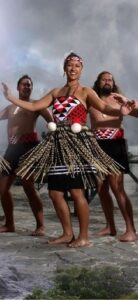
Arquivo para November 11th, 2020
The “gift” theory
We leave a question at the end of the previous post (Power and gift), how gifts could serve society, and there are sociological studies on this.
Marcel Mauss, along with his uncle Emile Durkheim were animators of the French magazine Année Sociologique, and he was the main systematizer of the “don” (French) theory that was translated into Portuguese dádiva (“godsend”), as a gift, in English it is even worse because it became the theory of the godsend (gift in English), important thoughts for the founders of solidarity and fraternal alliances in contemporary societies.
of the French magazine Année Sociologique, and he was the main systematizer of the “don” (French) theory that was translated into Portuguese dádiva (“godsend”), as a gift, in English it is even worse because it became the theory of the godsend (gift in English), important thoughts for the founders of solidarity and fraternal alliances in contemporary societies.
Alain Caillé, founder and editor of Revue du M.A.U.S.S. (Anti Utilitarian Movement in Social Sciences) and one of the propagators of Marcel Mauss’ thought at the present time stated that this theory “provides the guidelines not only of a sociological paradigm among others, but of the only properly sociological paradigm that can be conceived and defended” (Caillé, 1998, p. 11).
The book by Marcel Mauss Essay on gift: form and reason of exchange in archaic societies (2003), brought among many contributions the sociological idea that the value of things cannot be greater than the value of the relationship and that symbolism is fundamental to the social life.
The emergence of a collective moral obligation involving the members of a society, supposes aspects as diverse since the exchange of goods as the simple exchange of a mere smile, it is necessary to emphasize the complexity of the motivations and the modalities of the interactions not to reduce them to the simplism of purely economic ideas, what he called homo economicus.
The notions of honor and prestige permeate the gift economy, being essential to guarantee the circularity and reversibility of the exchanges.
The Essay on donation inaugurates a fruitful tradition of studies on reciprocity and the circulation of things, expanding the theme of the alliance, central to French Anthropology from the work of Claude Lévi-Strauss (1908-2009), and which knows specific readings in the works of Maurice Godelier (1934-) and Pierre Bourdieu (1930-2002), he elaborates not only the theory of gift or giving, but the threefold obligation of giving, receiving and giving back, based on the analysis of different peoples that studied.
In their studies, goods circulate between clans and tribes following the rule that, the greater the donations, the greater prestige granted to their donors, but the benefits must be returned, if not immediately, at a later time, assuming a character disguisedly disinterested or informal.
According to his study, this occurs with the Taonga in Polynesia (photo above), with the Vaygu’a in Melanesia and with the copper emblazoned in the American Northwest.
This idea of a gift (or gift as it was translated) is that what we have either as value or as talent can be given, reciprocated or received.
CAILLÉ, Alain. (1998) “Nem holismo, nem individualismo metodológicos: Marcel Mauss e o paradigma da dádiva”, Revista Brasileira de Ciências Sociais.
MAUSS, Marcel. (2003) Essai sur le don. Forme et raison de l’échange dans les sociétés archaïques, Paris, PUF, 2007 (Trad. Bras. Paulo Neves. São Paulo, Cosac Naify).

